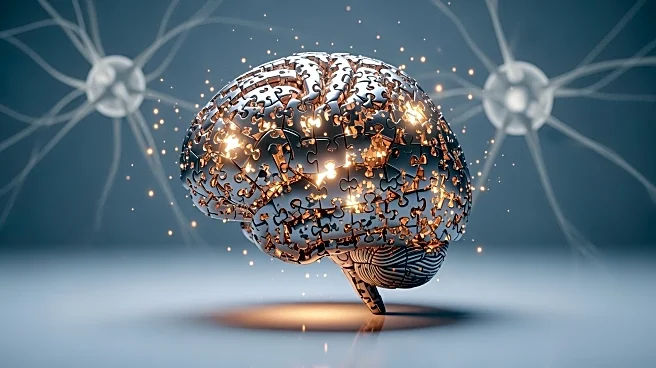What's Happening?
A recent study conducted by Signy Sheldon and colleagues at McGill University, published in the Journal of Neuroscience, has explored how different storytelling strategies affect memory formation and recall.
The research involved 35 participants who listened to narratives with the same core events but varied in elaborative details. These details were categorized into conceptual, focusing on feelings and interpretations, and perceptual, emphasizing concrete observations. Neuroimaging revealed that these storytelling styles activated distinct memory networks in the brain, which later influenced how well participants recalled the core story events. The study suggests that storytelling style can significantly shape memory formation, potentially allowing communication to be tailored to different audiences, including age groups.
Why It's Important?
The findings of this study have significant implications for communication strategies across various fields, including education, marketing, and media. By understanding how storytelling styles activate different memory systems, educators can tailor their teaching methods to enhance learning and retention among students of different age groups. Similarly, marketers can design campaigns that resonate more effectively with their target audiences by aligning their messaging with preferred memory systems. This research also opens avenues for improving memory retention in older adults, who may benefit from conceptual storytelling. Overall, the study highlights the potential for personalized communication strategies that cater to individual memory preferences, thereby enhancing information retention and recall.
What's Next?
Future research may focus on testing the application of these findings in real-world settings, such as classrooms and advertising campaigns, to evaluate the effectiveness of tailored storytelling strategies. Additionally, further studies could explore the neural mechanisms underlying these memory systems in greater detail, potentially leading to interventions for individuals with memory impairments. Researchers may also investigate how cultural differences influence storytelling preferences and memory formation, providing insights into global communication strategies. As the understanding of memory systems evolves, there may be opportunities to develop new technologies or tools that leverage these insights to improve cognitive function and memory retention.
Beyond the Headlines
The study's insights into memory systems could have ethical implications, particularly in the realm of persuasive communication. Understanding how storytelling styles influence memory could be used to manipulate public perception or consumer behavior, raising questions about the ethical use of such knowledge. Additionally, the research highlights the complexity of human cognition and the need for interdisciplinary approaches to studying memory, involving neuroscience, psychology, and communication studies. As society becomes increasingly reliant on digital media, understanding how storytelling impacts memory could inform the design of digital content and platforms, ensuring they support healthy cognitive development and information processing.








